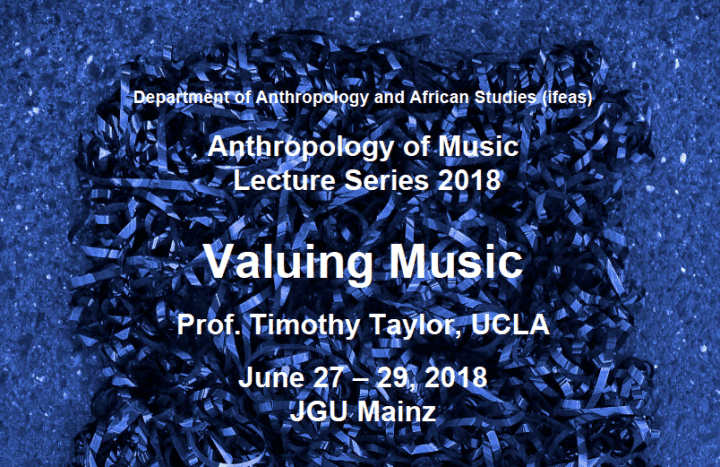Lecture 1: Capitalist and Paracapitalist Value of Cultural Goods

Anthropology of Music Lecture Series 2018
Valuing Music
Prof. Timothy Taylor, UCLA
It is usually assumed that practices and ideological structures such as flamboyance and showmanship in performance, or the attitude held by artists characterized by Bourdieu as “the economic world reversed,” or various conceptions of authenticity, are epiphenomenal, distinct from either the aesthetic value or the economic value of cultural goods. Drawing on David Harvey’s claim that capitalism disciplines other forms of the production of value, this lecture asserts that such ideological structures are in fact disguised and stockpiled forms of capitalist value. The argument is that one of the ways that capitalism operates, at least in the realm of cultural goods, is by disciplining, or creating, forms of value that exist alongside it; they are forms of value that might be culturally viewed as something other than capitalist forms, but actually are disguised and stored forms of capitalist value that I call “paracapitalist.” Three case studies help make this argument: the rise of the virtuoso in western Europe in the late eighteenth to early nineteenth centuries as a new social personality; the history of provenance in the visual arts; and the process of designating a local cultural practice as a Masterpiece of the Oral and Intangible Heritage of Humanity by the UNESCO.
Timothy Taylors first lecture, held at the Anthropology of Music Lecture Series 2018, on June 27